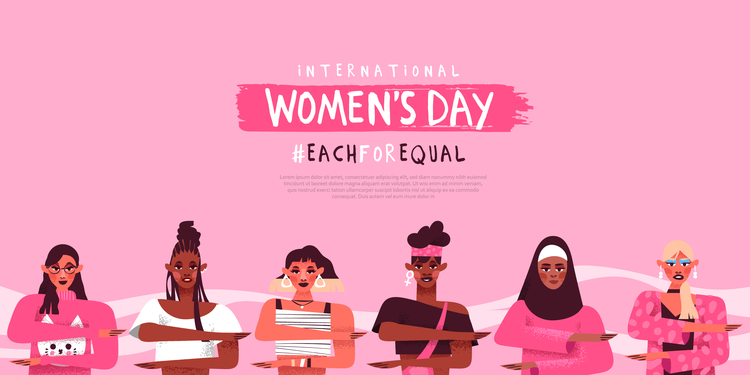My childhood conditioned me to fear. My aunties, who raised me by proxy, were always quick to send me off to my room or to the kitchen, especially on nights when my uncles were around drinking beer with Eba and talking about politics. It was important to them that I did not grow up and ‘wa l’anya,’ which is a loose Igbo translation for ‘shine eye.’ It was also important to them that I did not end up like my father’s youngest sister whose voice sounded as thick and as sure as a man’s. On Sunday evenings, my father’s youngest sister would sit down holding her glass of beer and centre herself in the conversation, out laughing the potbellied men and often contradicting them—much to my father’s obvious irritation.
From what I was told, she was exactly the kind of woman nobody wanted to marry. To my other aunties, a woman’s place in a room is ‘second.’ She is an ‘after’ or an ‘otherwise.’ Many of us are familiar with the local saying that a woman should be seen, not heard. If you talk too much, you are proud. And if you must contradict a man, do it gently, massage his ego. Make it appear like the idea was his own in the first place, which all seems fair and logical, except the only recipient for this tenderness must be men. I remember when one of my uncles was about to get married—the praises that came for his fiancée were so adoring but also, they majorly revolved around her being quiet and humble. Humble because she worked in a bank but still woke up every morning to make fresh food for her fiancé, who was self-employed; quiet because she was the perfect host, shuttling between the kitchen and dining when family guests were around.
I no longer quarrel over the legacies of my aunties. They have lived their lives to the best of their own making, constructing their opinions based on the narrative that society fed them in their time. Some of them have married and seen that humility does not make a man keep his vows, nor will it stop him from raising his hands to hit a pregnant woman. Maybe the truth is that we have no roles, and our actions or inactions will never be predictors of human outcomes. Men who want to manifest shall surely manifest. Women too but let us not digress.
On a personal note, I am constantly outrunning the fears that framed my childhood. But to unlearn this legacy of silence, I have to practice self-respect. A case in point was when, recently, I called out a man for interrupting me in the middle of a conversation. The man in question is white so my irritation was doubled by both the gender and racial dynamics. It is possible, as he explained, that he did not mean to silence me, though that was the second time the incident was happening. But what I know is that my voice matters, my thoughts matter and next time, when someone hijacks a conversation from me, I will promptly step in and address as necessary, regardless of their gender.
In a world that blindly celebrates people for coming first, women can no longer afford to be second or seen as a mere casualty of male banter. This, to me, means that women need to take up more space. Deliberately. In the classroom, boardroom, at the bars and pharmacy. Stop apologizing every time you have a thought. Reduce the self-editing. Prepare to lead, because leadership is not biological, and intellect has no gender.
We must speak, even though speaking sometimes is a risk. Standing for what you want will mean that sometimes, people will reduce you to hormones and anger. “She is sensitive” they may say, but please, be sensitive and speak. Speak up. Speak loud. Speak truth to power. Speak against anything that interferes with your voice.
Happy International Women’s day.
